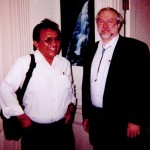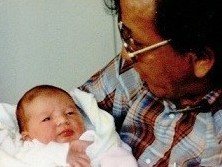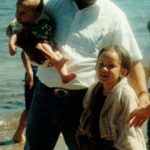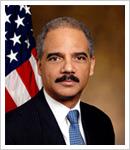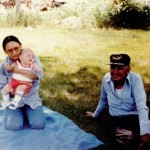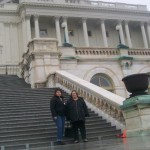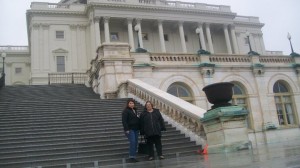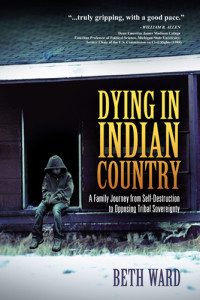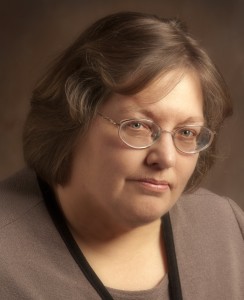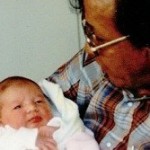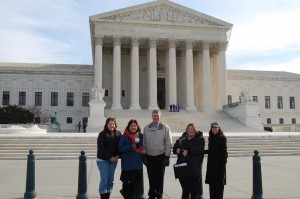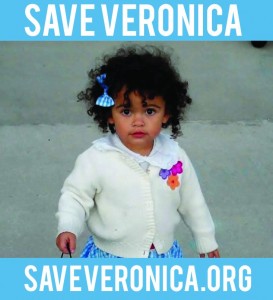I was interviewed this week by an AP reporter. Wishing to avoid a repeat of the disingenuous interview I had two weeks earlier with the reporter from “Religion” News Service, who did NOT report who did NOT report things as they were actually said, I asked the AP reporter if she wouldn’t mind writing questions down for me. I told her that I could then either simply write out my answers (ensuring accuracy for both of us) or talk on the phone.
This are my responses to her six questions:
1. Can you talk about the founding of the Christian Alliance for Indian Child Welfare. Why did you and your husband want to start the organization?
This was all explained to the reporter, Angela Aleiss of Religion News Service, as well. None of it was important enough to include in her article. As you have spent time reporting on things in the Dakotas, I am praying you will be able to see his heart a little easier than this reporter from Los Angeles was able to.
My husband was a man of 100% Minnesota Chippewa heritage. He grew up on the Leech Lake Reservation in the 1950′s. He didn’t speak English until he was 5 years old and began kindergarten. His fondest memories were of “ricing season” – the time in the early fall when the wild rice was ripe on the lake and the community would pitch tents down there and spend a couple weeks “ricing” the traditional way. He said it was like the Christmas Holiday is for us.
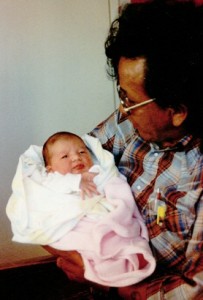 We had five children together and raised four of his relatives’ children as well. They were placed with us through ICWA – their parents were addicted to crack. So that was nine kids total. (not a total of 13 as stated by the other reporter) When the four came to stay with us, they were all very young. The youngest was only a year old. I had 8 kids under the age of 8 at the time (and one 12-year-old)
We had five children together and raised four of his relatives’ children as well. They were placed with us through ICWA – their parents were addicted to crack. So that was nine kids total. (not a total of 13 as stated by the other reporter) When the four came to stay with us, they were all very young. The youngest was only a year old. I had 8 kids under the age of 8 at the time (and one 12-year-old)
It was, as you can imagine, very difficult. I raised all of the kids to the age of 18 (although one was in therapeutic care for a couple years). I kept the four even through my husband’s terminal illness. You see, he was very afraid of turning them back to the tribe – even though we were struggling very hard to raise them all. He had seen too many very bad things happen to children in his family. He knew what his extended family was capable of doing to children. We knew of physical abuse, emotional abuse, neglect. I was at the funeral of a 2-yr-old who was beaten to death. I chased a drunk off of a 10-yr-old girl. He didn’t know I was on the bed when he pushed her onto my legs, trying to take her pants off. And there is so much more.
The other reporter, despite being told this, chose to make the story about me and MY motivation for getting involved.
As a man of 100% heritage – my husband had made the decision to raise his kids elsewhere, off the reservation, because of the danger and corruption going on at Leech Lake.
The fact is – he isn’t alone. 75% of tribal members, (according to the last two U.S. censuses) do NOT live on the reservation. Many have left for the same reason he did (not all have left for the same reasons – but many)
Because of his fear of his children ever being raised on the reservation, he feared what would happen if we both died. He had also become a Christian and had led me to the Lord. This can be confirmed by his cousins as well as many others who were around at the time. He was determined to raise his children Christian and so wanted me to be a Christian as well. He did not want t
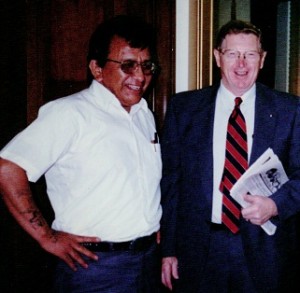
Roland and Senator Conrad Burns, 1997; Click for link to his 1998 Senate Testimony
he tribe to move the kids to the reservation or place them with relatives. If he died, he wanted one of our Christian friends to finish raising our kids.
So – it is for all these reasons that he disliked the Indian Child Welfare Act and began to speak out against it. This was in the 1990′s. We made a website – and as we wrote about the law, people across the country began to contact him.
You see, at the time, when you would google ICWA – all you would get is all the sites that supported ICWA. Ours was the only one that didn’t. So people began to contact us and ask for help. Tribal members and non-members. Birth parents, foster parents, and adoptive parents.
Their stories broke our hearts. Lots of abuse of children – by tribal
governments. But we were just two parents, no different than them. Roland continued to speak up though, and had opportunity to give testimony to the Senate Committee, among other opportunities.
In February 2004, we founded the Christian Alliance for Indian Child Welfare so we could help other families better. It has been a blessing every time we have been able to help someone – because we are small and simply do the best we can. We give all credit to God for whatever we are able to do.
When Melanie Capobianco first contacted us in July of 2011, we did our best to help her as well. I have found her to be a very sweet, kind, thoughtful, woman. She has been able to back up everything she has said with documentation. As the Supreme Court of the United States noted, the ICWA should NOT have been used to prevent this adoption. According to Oklahoma law, there is only 90 days after birth in which a father can show his interest in paternity. If he does not do this, he loses his right to object to an adoption. He is not considered a legal parent.
Mr. Brown exceeded that. He also exceeded the limits under South Carolina law. He admitted in the first family court – documented on the court record for all to see – that he did not, in truth, make any attempt to contact, inquire about, or provide for this baby in any way, shape or form. By the laws of both states, he had lost his right to object to an adoption. In the meantime, Matt Capobianco was there at the birth and cut the cord. THAT is the fact that the states (and SCOTUS) have been ruling on.
2. What, in your opinion, are the problems with ICWA? Why is it harmful?
We are told time and again that the Indian Child Welfare Act (ICWA) isn’t about race or percentages, but about preserving a dying culture.
There is much benefit in enjoying ones heritage and culture.
Everyone of us has a historical heritage. Some hold great value to it and want to live the traditional culture (to a certain extent. Few try to REALLY live traditional), others only want to dabble for fun – but others aren’t interested at all.
My children have the option of enjoying Ojibwe traditional, German Jewish, Irish Catholic, and Scottish Protestant heritage. We told them as they were growing up that each one of their heritages are interesting and valuable. (While at the same time making it clear that Jesus is the only way, truth and life.)
Most of us whose families have been in America for more than a couple generations are multi-heritage. Even most tribal members are multi-heritage. All individuals have a right to choose which heritage they want to identify with. If one of my children were to choose to identify with his or her Irish heritage, it would be racist for anyone – even a Congressman – to say that their tribal heritage was more important.
 There are times to speak softly, and other times when people and situations need to be firmly set right. This is a time for firmness. For those who think I don’t have a right to speak because I am not “native,” think again. As long as they are claiming multi-heritage children, I have a right to and WILL speak. They are claiming jurisdiction over MY children and grandchildren.
There are times to speak softly, and other times when people and situations need to be firmly set right. This is a time for firmness. For those who think I don’t have a right to speak because I am not “native,” think again. As long as they are claiming multi-heritage children, I have a right to and WILL speak. They are claiming jurisdiction over MY children and grandchildren.
Reality Check: It is up to families and their ethnic communities to preserve traditional culture amongst themselves if they value it. That is the same no matter what heritage is the question. Many groups do this by living or working in close proximity – such as in Chinatown, or Dearborn, Michigan – or any of the ethnic neighborhoods within large cities. It is a very normal thing for humans to do.
But no other community has asked the federal government to enforce cultural compliance to that community. The federal government has NO right to be forcing a heritage or culture onto an individual or family. Contrary to what Congress assumed, my children are NOT the tribal government’s children – nor are they “commerce” under the “Commerce Clause” the ICWA was based on.
To those who constantly parrot that “white people” are “stealing” THEIR children, Wrong: TRIBAL GOVERNMENTS are currently stealing OUR birth children.
I am NOT comfortable phrasing it that way IN THE LEAST. I try to avoid talking about race in ways that give it any kind of validity. Tribal governments and the BIA, although claiming to the contrary, are the ones making “race” an issue.
- There is no gene in our DNA for “race” according to the Genome Project. All there is are genes from familial traits such as color of hair and shape of cheekbones, etc. In fact, the Genome Project has traced all DNA back to one singular family.
- Those ‘DNA tests’ for ‘race’ don’t actually test for race. They test for the genes that show up primarily within a people group – in actuality a “family” gene – and the location of that people group is mapped. The assumption is then made that this is a “racial marker.”
- There is NO inherent gene in persons of Native American descent that will cause them to have “Split Feather” if not raised within Indian Country. “Specialists” in “Split Feather” simply blame any mental health issue that comes up on this fictitious malady. The “studies” on “Split Feather” have serious flaws – i.e: taking a small sample of children, some of whom have alcohol related birth defects, who had been abused and neglected by birth parents and then placed in Caucasian foster homes – and blaming ALL later emotional difficulties on the fact that they were in Caucasian homes without any real regard for the precipitating issues.
- My husband and I did not make race an issue in our multi-heritage home. Although we recognized the treasure in all heritages, we chose to make Jesus the bigger and better focus.
Those who accuse us of genocide for demanding that tribal government keep their hands off our kids need to get something straight. They are free to raise their children in the manner they see best. They are NOT free to raise MY children in the manner they see best – nor are they free to do so with the thousands of families across the United States who feel the same way that we do.
Targeting other people’s kids to bolster membership rolls might be easier than doing the work necessary to keep one’s own children within the reservation community – but that isn’t something we are standing for anymore.
Reality Check: 75% of tribal members, according to the last two U.S. Census’, do NOT live in Indian Country. Some continue to value the reservation system and culture, but by the admission of tribal leaders who bemoan the loss of tradition – MOST do not. Individual tribal members are making private and personal choices. To continue blaming it on “white” people is disingenuous.
 Personal experience: While taking Ojibwe language classes for a year to learn more about my husband’s culture – I attempted to encourage our household to speak it more. Boy, was I in for a surprise. My husband who spoke it fluently from birth, wasn’t interested in having the kids learn it. His teenage nephews, who I was raising at the time, weren’t the least bit interested in learning it. And you know what? THAT was their choice! My husband was a man – my nephews were free individuals. No one has a right to force them to conform to what tribal government thinks is best.
Personal experience: While taking Ojibwe language classes for a year to learn more about my husband’s culture – I attempted to encourage our household to speak it more. Boy, was I in for a surprise. My husband who spoke it fluently from birth, wasn’t interested in having the kids learn it. His teenage nephews, who I was raising at the time, weren’t the least bit interested in learning it. And you know what? THAT was their choice! My husband was a man – my nephews were free individuals. No one has a right to force them to conform to what tribal government thinks is best.
If people are leaving Indian Country and turning their backs on culture and the reservation system – that is something Tribal governments are going to have to look inward to resolve.
Reality Check: Tribal members are individuals with their own hearts and minds – not robots ready to be programmed by the dogma spewed in “Indian Country Today.” Further, they are U.S. Citizens – and many, despite the rhetoric of a few – value being U.S. citizens.
If people are turning their back on traditional Indian culture and embracing American culture — that’s no different than what happens with any heritage in close proximity to other heritages. It’s been a reality to civilizations forever. China tried to prevent it for centuries. North Korea is trying it today. But to keep things forever the same – a government has to suppress the rights of the populace – many times with cruelty. However, no dictatorship has been able to keep it up forever.
Those yelling and screaming about it being the fault of “white” people who adopted babies and the fault of boarding schools from 50 years ago and the fault of everyone else – need to wake up. Free-thinking individuals have been taking their kids and leaving the reservation system in droves for decades. It is no one’s fault. It is life. It’s probably even the REAL reason ICWA was enacted. (Blaming the exodus on “White” adoptive homes just sounded better – there was more of a hook in it than “our people are simply taking their kids and leaving.”)
Reality Check: Stealing babies won’t solve the problem because many of them will grow up and leave as well.
Extending membership criteria to match that of the Cherokee Nation – as 60 tribal governments are currently considering doing – won’t solve the problem either. It is only going to further open the eyes of the rest of America, and further anger those of us who do not want oppressive and predatory tribal govt touching our children, grandchildren, or great-great grandchildren.
Tribal leaders can NOT force other families to submit to their value system. That is why ICWA is totally unconstitutional. They are attempting to force many people of heritage to preserve something they have personally decided isn’t of value to them.
Now – I realize that tribal governments will turn that statement around and make it about ME – claiming I am out destroy tribal culture and commit Genocide and again totally ignore the fact that tribal members themselves are fleeing Indian Country.
Nope. I said you can’t force tribal members who are not interested in preserving the culture to submit to the demands of the few who DO want to preserve it. You are forcing your values down the throats of people who have decided to live differently and have chosen to raise their children differently.
Example. I have a niece that is 50% Native American, 50% African American, who has decided to be Muslim and raise her children Muslim.
That isn’t me doing it. She knows her Uncle wanted her to know Jesus. That is an individual making her own decision – no matter how her uncle would feel about it – or how tribal Government feels about it.
3. Some people are surprised that your husband, who was Native American, spoke out about his displeasure with the Act. Why was that?
Just why would a family decide that reservation life is not what they choose for their family? The reasons are many.
 What cannot be denied is that a large number of Native Americans are dying from alcoholism, drug abuse, suicide and violence. Further, scores of children are suffering emotional, physical and sexual abuse as a result – and the Indian Child Welfare Act is trapping more and more children into this unacceptable system.
What cannot be denied is that a large number of Native Americans are dying from alcoholism, drug abuse, suicide and violence. Further, scores of children are suffering emotional, physical and sexual abuse as a result – and the Indian Child Welfare Act is trapping more and more children into this unacceptable system.
While many tribal governments continue to fund congressional candidates who promise to increase tribal sovereignty, the voices of the children who are at the mercy of corrupt government continue to go unheard. The truth is that some tribal governments are not protecting the children in their “custody.” Instead, they are gathering children where they can because federal funding allocations are based on the U.S. census and tribal rolls.
Our book, Dying in Indian Country, tells exactly why Roland felt the way he did about ICWA and about tribal sovereignty in general. It provides a real glimpse into some of the unacceptable conditions his family has lived in – and I am not referring to poverty. We have been very comfortable with poverty. Living low income isn’t a bad thing. But violence, child abuse and child neglect is. ‘Dying in Indian Country’ tells the story of our family – which after years of alcoholism and pain, comes to realize that corrupt tribal government, dishonest Federal Indian Policy, welfare policy, and the controlling reservation system has more to do with the current despair than the tragedies that occurred 150 years ago.
“Dying in Indian Country is a compassionate and honest portrayal… I highly recommend it to you.” Reed Elley, former Member of Parliament, Canada; Chief Critic for Indian Affairs in 2000, Baptist Pastor, Father of four Native and Métis children
“He was a magnificent warrior who put himself on the line for the good of all…I can think of no one at this time, in this dark period of Indian history, who is able to speak as Roland has.” Arlene,Tribal Member
“…truly gripping, with a good pace.” Dr. William B. Allen, -Emeritus Professor, Political Science, MSU and former Chair of the U.S. Commission on Civil Rights (1989)
4. Can you give some examples of how ICWA has, in your opinion, caused problems for individuals or families?
– This 3-year-old was beaten to death in June, three months ago, after having been taken screaming from the safe, loving home she had been in Bismarck –
https://caicw.org/2013/06/21/a-child-dies-and-dozens-more-remain-in-abusive-homes-ignored-by-the-bia/
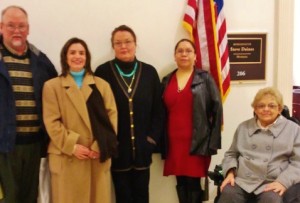
Washiington DC, February 2013
– Sierra came with us to DC in February, 2013 and told her story to Congressional offices – how she was taken from the only home she loved (albeit Caucasian) and placed with an uncle who she was forced to sleep with at the age of 10. She begged to be allowed to go “home” to the people who wanted to adopt her. They would not let her go – until she was 16 and they cut her down from a rope when she tried to hang herself.
http://www.startribune.com/local/190953261.html?refer=y
– A birth mom stands up for herself:
http://www.xojane.com/issues/my-uterus-will-not-be-used-to-fill-your-tribal-rolls-i-fought-the-icwa-and-won?utm_medium=facebook
– An official report from Thomas Sullivan, Regional Director of the ACF, Denver office, concerning the abuse at Spirit Lake. There is a link to his 12th report as well.
https://caicw.org/2013/04/05/13th-mandated-report-re-spirit-lake-child-abuse/

Removed from Hispanic grandparents home due to ICWA, he was beaten at maternal grandmothers home for speaking Spanish.
– This family wrote to us recently and asked me to post their story –
https://caicw.org/2013/09/08/like-veronica-this-child-is-hurt-by-icwa/
– Rebuttal to the NPR series:
https://caicw.org/2011/11/21/rebuttal-to-nprs-icwa-series-from-the-mother-of-enrolled-children/
– Other evidence of harm:
http://www.nytimes.com/2013/01/27/us/focus-on-heritage-hinders-foster-care-for-indians.html?_r=2&
– Two years ago – I had the letters from various families arranged much better on our website. Some people decided to help me with it and it’s not quite as I like it anymore… I still have to find time to arrange it my way again… But this is a link to many stories… https://caicw.org/family-advocacy/letters-from-families-2/
There are many, many more. I think its’ been a good two years since I have been able to put newer letters up.
5. How has the Baby Veronica case shed light on ICWA?
Some wonder why Capobianco supporters don’t side with a father whose child is being taken from him. Some have even questioned the authenticity of Christians who would support the Capobiancos. (Forgetting that even Jesus was raised by an adoptive father.)
One must understand that many Capobianco supporters have been there since the day they first saw, either in person or on video, the horror of not only having one’s child taken, but –
1) taken without the benefit of a caring transition, and –
2) taken solely due to 1% heritage, (as the father’s admitted abandonment of the child would have prevailed otherwise.)

Matt, Melanie & Veronica Capobianco
Just 1.12% heritage.
Since then, the Cherokee Nation has put on a show, shaking signs that claim “genocide” and claiming that “white people” are stealing “Indian” babies.
1.12% heritage.
If a C supporter brings up the 1% heritage, their statement is twisted and they are accused of racism – despite that it was the Cherokee Nation that brought the 1% into issue.
1.12% heritage.
As much as the Cherokee Nation, ‘Indian Country Today’, NICWA, NARF, and others want to spin it as a “citizen” issue – it is not spinning. Very few people – including many tribal members in Oklahoma and elsewhere – are falling for the “citizen” claim – especially when “citizenship” is being forced on children.
At 1.12% heritage.
Ardent supporters of the Cherokee Nation, either purposefully spinning for PR or snowed by their own rhetoric, fail to see how disgusted many others are by the claim that “white people” are stealing “Indian” babies.. Many Americans can see that claim for the dishonesty it is – but few have wanted to speak it. While it is okay for a tribal entity to speak in terms of race and percentages, it is deemed “racist” for anyone else to. But I will say what is on the hearts of many. This was no Indian Child being stolen by “White” people.
It was a Caucasian/Hispanic child, stolen by a tribe.
That is the bottom line.
As the Cherokee Nation continues to encourage and assist Mr. Brown in defying state and federal law, it is an overtly obvious fact. And that is why the Cherokee Nation and tribal governments in general aren’t getting the traction on their genocide spin (outside of ‘Indian Country Today’) that they somehow thought they would.
When you are talking about OUR children – which this child was – NOT an Indian child – you should expect hostility when trying to claim that child as the Tribe’s.
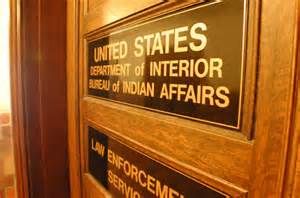 AND if 60 more tribal governments attempt to lower their membership criteria – as 60 are talking about doing – to CN levels and begin to target children of minute heritage – as the Cherokee Tribe has – they should not expect to get sympathy. They should expect a strong push back.
AND if 60 more tribal governments attempt to lower their membership criteria – as 60 are talking about doing – to CN levels and begin to target children of minute heritage – as the Cherokee Tribe has – they should not expect to get sympathy. They should expect a strong push back.
They should expect push back because now, due to the Veronica horror – a whole lot of Americans who would have otherwise remained oblivious to the issue, have woken up to what is happening and are outraged by the ICWA stories they are hearing. Many now want ICWA to be repealed.
Americans’ are not buying the rhetoric that tribal governments should have jurisdiction over children of 1% heritage. It is hard enough to justify ICWA jurisdiction over a child who is 25% tribal heritage – as the child is still 75% another heritage. Even children of a parent who is 100% – such as my own – have a right to be free from tribal government jurisdiction. Even individuals of 100% heritage have a right to be free of tribal government interference in their lives and families – if that is what they choose.
So do we feel angry? Yup.
Is there a Christian purpose and righteousness in that anger? Absolutely.
– “And they were bringing children to him that he might touch them, and the disciples rebuked them. But when Jesus saw it, he was indignant and said to them, “Let the children come to me; do not hinder them, for to such belongs the kingdom of God. Truly, I say to you, whoever does not receive the kingdom of God like a child shall not enter it.” And he took them in his arms and blessed them, laying his hands on them.” (Mark 10:13-16 ESV)
Having raised nine tribal members, five of whom are my birth children, and seen much tragedy, child abuse, sexual abuse, suicide, and other horrors on more than a few reservations – and having an advisory board and membership of parents who have raised, adopted and witnessed the same – we know far too much about tribal governments seeking children for the federal dollars, then showing little or no interest in what happens to them once they have been “retrieved” for the tribe and placed with a member. We won’t be bullied or intimidated.
We have known of far too many kids abused in ICWA homes, and some even murdered.
(Don’t even try to argue that point with me; I had been an ICWA approved home myself for 17 years. I know how little the tribal social services paid attention.)
So, concerning this particular case, in summary – for those who are flabbergasted that we would not be supporting the father – understand this: from the get-go,
1) Mr. Brown has been seen as an extremely selfish man.
2) The Cherokee Nation has been seen as an extremely selfish organization – using this child as a political pawn.
What appalls us is that not only were Mr. Brown and the Cherokee Nation willing to hurt this child deeply the first time a transfer took place – by taking her without any concern for her need of a transition – but even worse, Mr. Brown and the Cherokee Nation are now willing to do it to her a 2nd time.
How in the world are we expected to sympathize with people who do that?
– https://caicw.org/2013/09/01/taking-veronica-from-a-loving-father/
6. Anything else you’d like to add?
Mr. James Anaya, the United Nations Special Rapporteur on the rights of indigenous peoples,urges “relevant authorities” to maintain Veronica’s “cultural identity” and “maintain relations with her indigenous family and people.” The fact is that Veronica’s family is primarily of European descent and that is therefore much more of her “cultural identity” then her 1% Cherokee ancestry.
 If Mr. Anaya really cared about Veronica’s rights – he would advocate for her right to be an individual with freedom to choose her own identity. But he doesn’t honestly care about Veronica’s rights. He cares only for tribal sovereignty and the “right” of government to subjugate people.
If Mr. Anaya really cared about Veronica’s rights – he would advocate for her right to be an individual with freedom to choose her own identity. But he doesn’t honestly care about Veronica’s rights. He cares only for tribal sovereignty and the “right” of government to subjugate people.
In a press release, Mr Anaya stated,
“Veronica’s human rights as a child and as member of the Cherokee Nation, an indigenous people, should be fully and adequately considered in the ongoing judicial and administrative proceedings that will determine her future upbringing,” Mr. Anaya stressed. “The individual and collective rights of all indigenous children, their families and indigenous peoples must be protected throughout the United States.”
Never mind the “individual and collective rights of all United States citizens.” Never mind the children’s families and equally important heritage.
This is racism at its worst – regardless of the spin about it being about citizenship and political affiliation. Those are just fluff terms to gloss over the racial discrimination evident every time a supporter of tribal sovereignty states that “White people” are stealing tribal children, or that “White people” are guilty of genocide every time they adopt.
The claim that “White people” can’t possibly raise a “Native American Child” is especially offensive – in that most enrollable children are multi-heritage, primarily Caucasian.
Wake up people – hundreds of thousands of “Native American Children” have been and are currently being raised successfully by their own “White” birth parents.
If I can successfully raise my own birth children – so can my sister and my best friend.
You are absolutely right that this is about politics, not “race,” Mr. Arayo. If I had to choose between a friend (no matter the heritage) and someone with your political bias to adopt and raise my children – you lose.
We are not interested in honoring the racial prejudice of the Indian Industry supporters. A stranger from my conservative Church community (no matter the heritage) is preferable to a stranger beholden to Tribal government.
Keep politically biased, predatory, self-serving and profiting hands off of our kids. Period.
LASTLY – re: All the belly-aching about how “Un-Christian” we are being:
If certain groups want to believe it is “Un- Christian” to side with individuals, families, and human rights over horrific Government oppression – than so be it. I am tired of hearing the accusation that we aren’t being “real” Christians.
- Are they suggesting that Jesus threw money-changers out of the temple and called Pharisees “Dogs” because he was timid and didn’t want to offend anyone?
- Or that he was hung from the cross because everyone loved hearing what he had to say?
No, actually, this is what being Christian is about:
Ps. 82:3-4 (Psalmist to the kings) ”Defend the cause of the weak and fatherless; maintain the rights of the poor and oppressed. Rescue the week and needy; deliver them from the hand of the wicked.
Prov. 29:7 “The righteous care about justice for the poor, but the wicked have no such concern.”
Prov. 31:8-9 “Speak up for those who cannot speak for themselves, for the rights of all who are destitute. Speak up and judge fairly; defend the rights of the poor and needy.”
Isa. 1:17 “learn to do right! Seek justice, encourage the oppressed. Defend the fatherless , plead the cause of the widow.”
Isa. 10:1-3 (God, through Isaiah, to the Israelites) ”Woe to those who make unjust laws, to those who issue oppressive decrees, to deprive the poor of their rights and withhold justice from the oppressed of my people, making widows their prey and robbing the fatherless. What will you do on the day of reckoning, when disaster comes from afar? To whom will you run for help? Where will you leave your riches?
Jer. 22:16-17 “He defended the cause of the poor and needy, and so all went well. Is that not what it means to know me?’ Declares the Lord, ‘but your eyes are set on dishonest gain, on shedding innocent blood and on oppression and extortion.”
Acts 5:29 “Peter and the other apostles replied: ‘We must obey God rather than men!”
Jn. 15:18-21 “If the world hates you, keep in mind that it hated me first. If you belonged to the world, it would love you as its own. As it is, you do not belong to the world, but I have chosen you out of the world., That is why the world hates you. Remember the words I spoke to you: No servant is greater than his master. If they persecuted me, they will persecute you also. If they obeyed my teaching, they will obey yours also. They will treat you this way because of my name, for they do not know the One who sent me.”
Matt 5:10-12 “Blessed are those who are persecuted because of righteousness, for theirs is the Kingdom of Heaven. Blessed are you when people insult you, persecute you and falsely say all kinds of evil against you because of me. Rejoice and be glad, because great is your reward in heaven, for in the same way they persecuted the prophets who were before you.”
Col. 3:24 “since you know that you will receive an inheritance from the Lord as a reward. It is the Lord Christ you are serving.”
My husband and I prayed for years about what we were saying and doing and long ago came to the solid conclusion that it was the right thing to do before God. This org can’t be bullied about it now. We are past it.
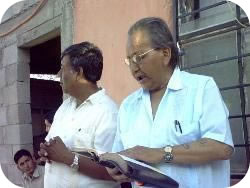
Roland Preaching a Sermon in Juarez, Mexico, June 2003

Baptism in Leech Lake, 2007


